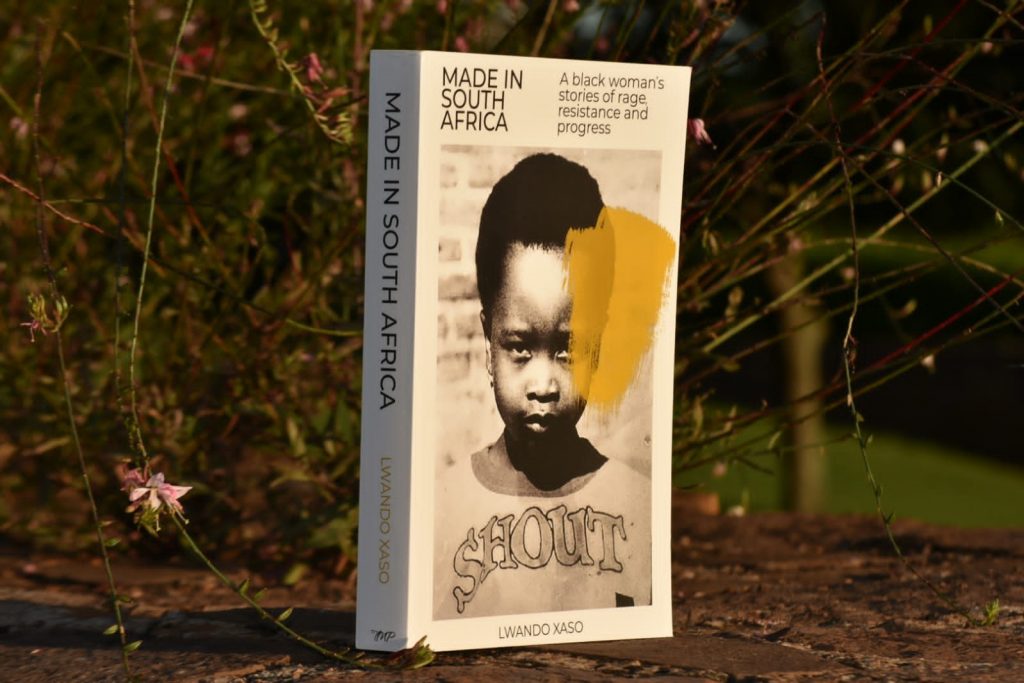
In South Africa, you are poor because you black, you are rich because you are white, you are a domestic worker because you are a black woman, you are a CEO because you are a white male and you are easily killed and sexually violated because you are a woman.
That is how our lives have been designed by those who had wicked purposes- divide white from black, a man from a woman, poor from rich.
However, despite all the challenges we face, we, the people have on numerous occasions showed that we remain committed to fighting all those challenges together and build a nation that is inclusive, just, equal, and non-racial as espoused by our constitution.
In Made in South Africa- A Black Woman’s Stories of Rage, Resistance and Progress, Lwando Xaso narrates her own stories that shaped her to be the woman that she is today, thanks to the lesson South Africa gave her.

Now, I must admit that while these are some of the articles that Lwando had previously published about her own reflections on her personal life and the complexities of contemporary South Africa. However, the stories, even today and for years to come(unless something is done) will resonate with so many young black people, particularly young black women, because they’re not just Lwando stories, but they are part of our daily life experiences.
I like the fact that Lwando in this book courageously confronted every single issue that our country is currently facing; anti-black racism, unequal racial treatment in corporate South Africa, unemployment, inequality, transformation, Die stem, apartheid outstanding debts, corruption, and the latest being Covid-19.
Made in South Africa is an important read that not only reminds us of our challenges as the people of this country but our resilient spirit and abilities, as people, to rise above our challenges and be united as we had previously done.
Perusing through the pages of this book, I was reminded that I, as a black man working in corporate South Africa, am not alone in facing unequal racial treatment and racial pay challenges, but we are many and we should, just like Lwando has done, speak out about all these challenges.
I agree with almost the points Lwando raises in this book, however, it is in her defence of why we should embrace Die Stem in our national anthem, where I disagree with her.

Her defence that because Die Stem is part of our dark history and as such, dark as it is, we should embrace in our democratic society- is just frivolous. Black people should not be forced to sing historical and racist songs, just because we want to embrace our past.
No, Lwando, we can chop this racist history out of our democratic national anthem, because not all our racist past should be part of our current history and Die Stem is one such part of history.
Despite this, Made in South Africa makes me hopeful and proud to be a shareholder in this INC called South Africa.

